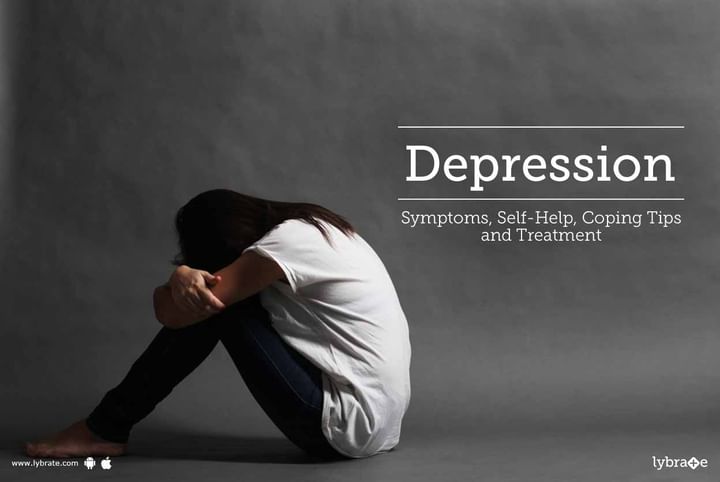Get the App
For Doctors
Login/Sign-up
Last Updated: Jan 10, 2023
BookMark
Report
Depression- Symptoms, Self-Help, Coping Tips and Treatment
Feeling tired all the time? Do you feel that you can’t focus on things anymore? Have you lost interest in things and people you once loved spending time with? Does your temper fly off the hook at the drop of a hat? If it is a ‘yes’ to the questions above, then you might be slowly but steadily succumbing to depression. Depression is a psychological disorder that is characterized by symptoms of extreme sadness, worthlessness and hopelessness over a prolonged period of time.
Symptoms
- Lack of Interest: This is probably the starkest of all the symptoms. Hobbies or activities that you used to enjoy once no longer catch your fancy. You do not find little or no pleasure in social activities or any other hobby of yours anymore.
- A constant Feeling of Hopelessness: You tend to develop a negative outlook towards life in general, as you feel that the current situation will never get better and will only worsen.
- Loss of Appetite: Loss of appetite is a common feature of depression; it can also lead to rapid weight loss. If engulfed by depression, one generally tends to ignore food completely, remain hungry, both of which contribute to the vicious cycle that depression is.
- Changes in Sleep Patterns: Insomnia is a condition that is marked by a sheer inability to sleep, no matter how physically exhausted one is. Depression tends to exhibit this particular symptom in maximum cases. However, oversleeping, or sleeping more than the sufficient hours is also common.
- Reckless Behavior: Depression makes one more prone to reckless behavior; one generally develops an angry and irritated persona; this in turn, may make one to exhibit reckless and rash behavior.
- Lack of Energy and Focus: Depression causes one to feel fatigued and sluggish the entire day. Factors such as a total loss of appetite contribute to this particular symptom. Stemming from these symptoms are two other major occurrences; an inability to focus on anything and an inability to decide on anything.
Self-help, Coping tips and Treatment-
- Connect with different people: Being isolated from the rest can and usually aggravates symptoms of depression. So, reach out to other people and your loved ones; talk to your loved ones and try to empty your mind when you are having a one-to-one with them. Interacting and talking to others will make you feel better and should go a long way in taking that huge rock off your chest.
- Try to ditch that sedentary lifestyle; go out in the open: An early morning jog can feel daunting at first but the benefits are immense. Exercising regularly has been proven to be as effective as anti-depressants in combatting depression. Even a 20 minutes jog early in the morning releases ‘endorphins’ in the body, also known as the ‘feel good hormones’. These hormones induce a feeling of happiness and relaxation, thus taking your mind off any particular event or circumstance that has been ruining your sanctity of late.
- Avoid Alcohol and Drugs: Avoid alcohol and drugs to come out of your sadness; they have never helped and will never help. Taking these substances provides a temporary solution to depression, as it will again show up once the effects of the intoxicants wear off. It will also interfere with other medications that you may be taking to combat depression, thus reducing their potency.
- It’s high time you bought the meditating mat: Sleep has a beneficial effect on your mental health as it has been proven to improve memory and other cognitive and brain functions. Another way to improve brain function and be more relaxed is to meditate regularly. Meditation induces a state of relaxation, and if done on a regular basis, can be an effective treatment for depression. Meditation also helps with an improved focus and reduced anxiety.
- Medications can always help: Medications such as anti-depressants are administered to treat depression. Selective Serotonin Reuptake Inhibitors (SSRIs), including citalopram, fluoxetine and sertraline are the most commonly administered medications to cure this condition. However, it is advised to try the abovementioned methods first so that you do not have to depend on medications alone; the reason being that these medications do have their fair share of side effects.



+1.svg)
